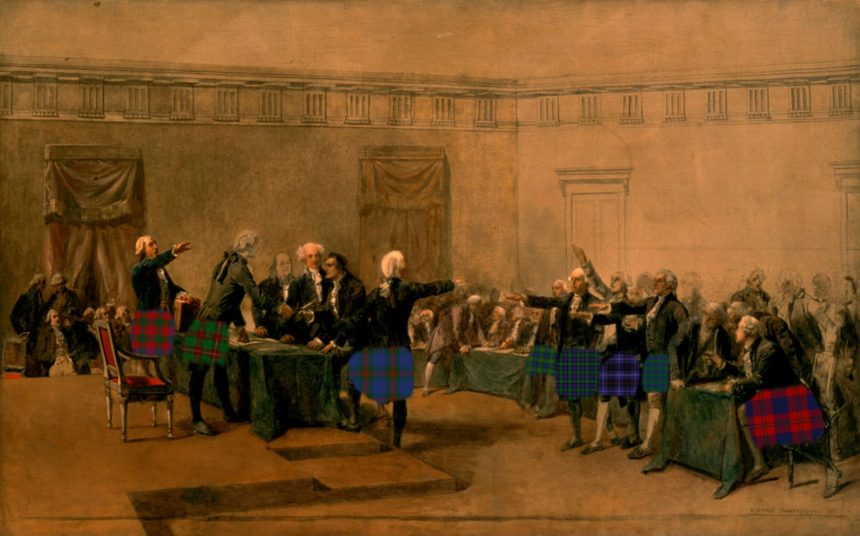Every American can recognise this iconic painting depicting the signing of the Declaration of Independence, but do you know about the Scottish influences that were there that day?
Did you know that Scotland had a major impact on the development of the United States? Neither did I, and I grew up in the US and had three separate years of American history in school. I’ve heard the story of the Founding Fathers and the 1774 Declaration of Independence—it’s the foundation of the American identity after all. However, I was never taught the full story, namely the part about the Scots playing a major role in the birth of the nation. The American story likes to begin with the Pilgrims and then the signing of the Declaration of Independence, but our story is actually much older and more diverse than we are led to believe. In school, we learned that we are a nation of immigrants, and we learned about the British, French, and Spanish influences on our history. So why was the Scottish voice hidden, despite its considerable influence on the birth of the US?
Scottish Foundations in the US
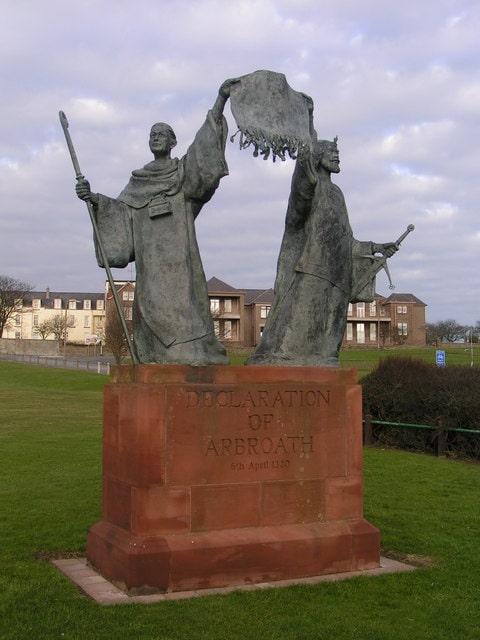
Recently, I was doing research about tartans for a university study project, and I stumbled across the 1998 US Senate Resolution 155 that formally proclaims April 6th as National Tartan Day, which is the date that the Scottish Declaration of Arbroath was signed in 1320. The resolution also states that “the American Declaration was modelled on that inspirational document,” and it “honours the major role that Scottish Americans played in the founding of this Nation.” Yet despite this official recognition, I grew up completely unaware of this documented fact. Inscribed as a UNESCO Memory of the World, the Declaration of Arbroath was a letter to the Pope that asserted Scotland’s right to be independent from England. Sound familiar?
Out of curiosity, I looked further into this newfound fact, and I learned that the Scottish were extremely fundamental in creating the American nation as we know it today, which, in turn, has had a profound impact on the world. As recognized in the resolution, “the Governors in 9 of the original 13 States were of Scottish ancestry.” Both Founding Fathers Alexander Hamilton and Patrick Henry, who famously declared “Give me liberty, or give me death!,” were raised by fathers from Scotland, and Benjamin Franklin was educated at a Scottish university.
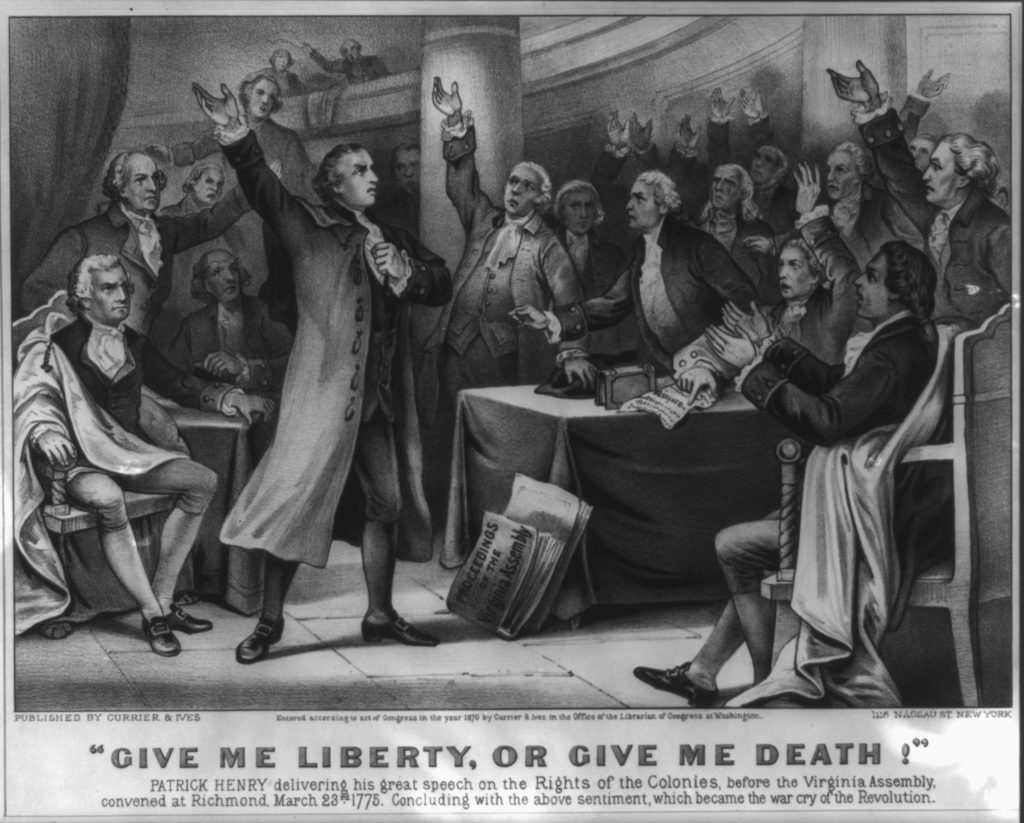
Scottish Americans also contributed to several firsts in US history, such as the first secretary of war and the first surgeon-general as well as the first shot fired in the War of Independence. Of the 56 men who signed the Declaration of Independence, at least 19 were of Scottish ancestry, two of whom were actually born in Scotland and were also members of the Continental Congress: John Witherspoon and James Wilson.
Influential Founding Fathers
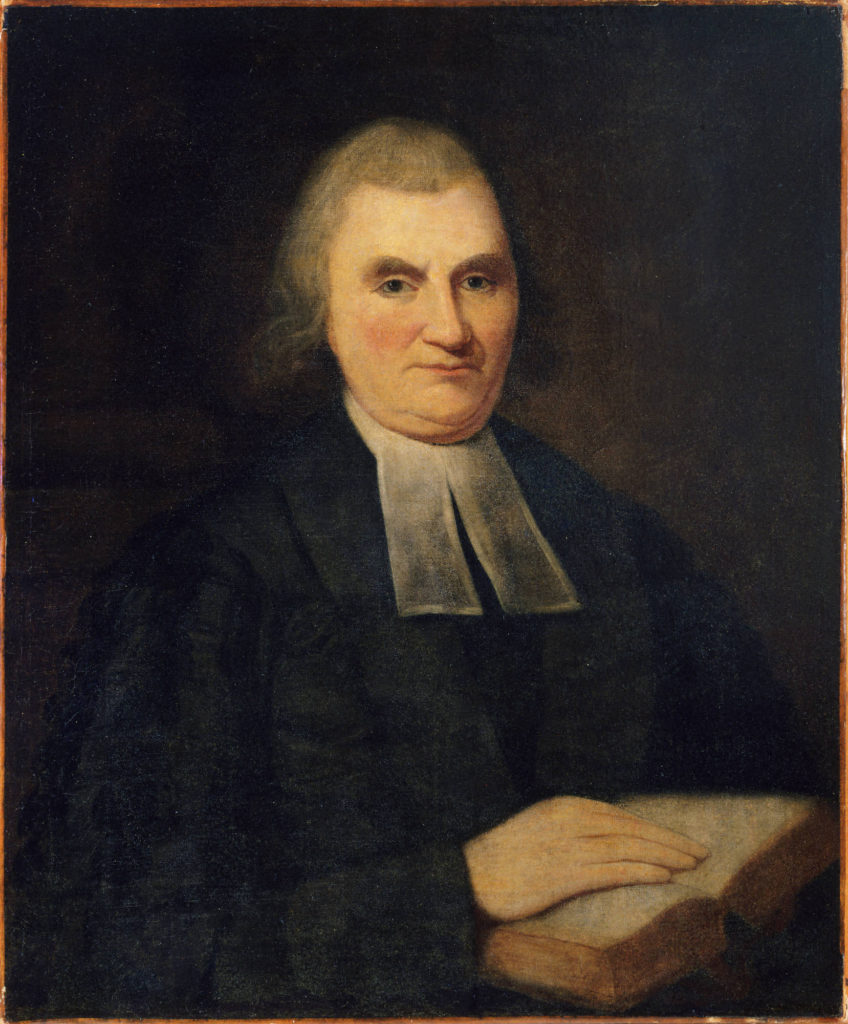
John Witherspoon (1723-1794) played an influential role in the development of the US Presbyterian Church as well as Princeton University, an iconic bedrock of American education. He incorporated many ideas from the Scottish Enlightenment into Princeton’s curriculum and strongly affected the nascent nation through his influential students, which, according to Stewart Lamont of The Scotsman, included “a future president and vice-president, nine cabinet officers, 21 senators, 39 congressmen, three Supreme Court Justices, and 12 state governors.”
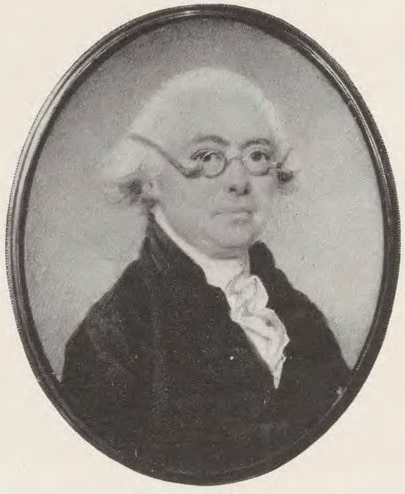
James Wilson (1742-1798) is the one who coined the quintessential ideal of “no taxation without representation,” which became a sort of rallying cry for the American Revolution and a foundational stone in the American story. He also came up with the beginnings of the idea of Judicial Review, which eventually evolved into the Supreme Court, a core institution of the US government. In addition, he was a federalist who helped both opposing sides compromise on creating the US Constitution, the very foundation of American society.
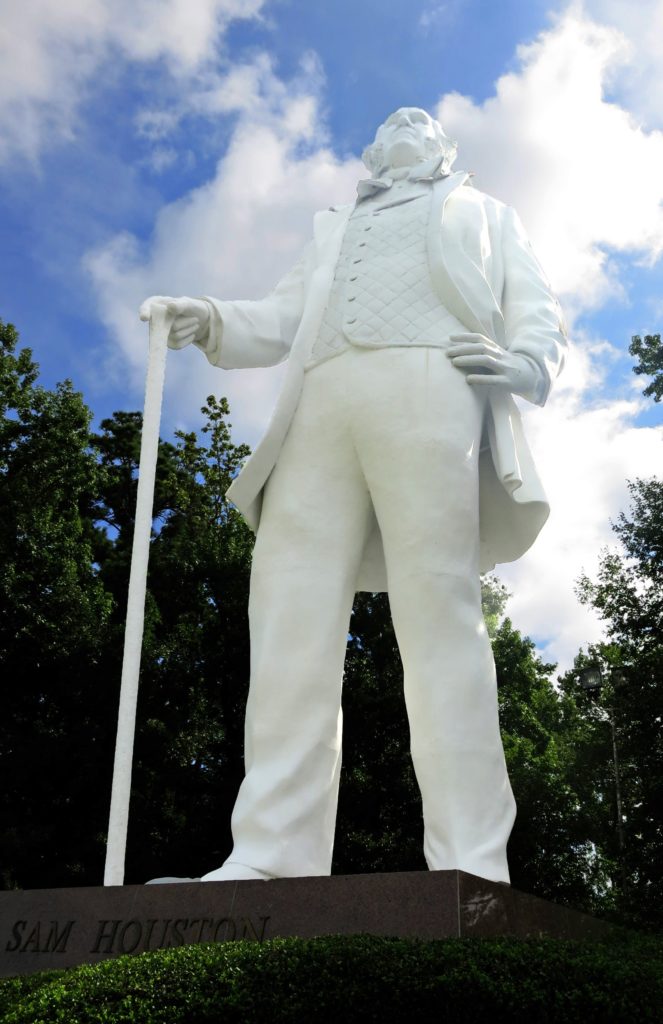
In my research, I even discovered that Scottish Americans played a major role in settling the Texas frontier, and Sam Houston, an influential Founding Father of Texas, was of Scottish ancestry. I was born and raised in Texas, and I spent most of my life there until 2016. Texas is unlike any other US state. Texans have a strong sense of Texas pride and identity that doesn’t exist in other states, which is why my school curriculum included an entire year of Texas history, while most other states do not have a year of their state history. And yet, I had never heard of this Scottish side of the story, despite the fact that Texas was a prominent destination, among others, for Scottish and Scottish American immigrants because it was seen as a land of opportunity.
Personal Reflections
All of these discoveries of my country and state’s hidden Scottish heritage have delighted me. I’ve always had an interest in Scotland, which has only increased since I discovered my own Scottish ancestry. However, it also angers me because I feel like I’ve been lied to my whole life by this omission of this very essential detail in the story of American heritage. The more I learn about Scottish history, the more my heart aches as I learn of the oppression and struggles they have faced throughout history. With that in mind, I can’t help but wonder if the Scottish voice was silenced intentionally in the new country created by former British colonies, especially considering that Scottish history isn’t even taught much in Scottish schools as it is a history of rebellion against England.
On the other hand, perhaps the Scots kept their heritage silent on purpose to distance themselves from the recent pains they had experienced in Scotland, especially after the Battle of Culloden and the Highland Clearances, to move forward and embrace this new American identity that they were foundational in creating. In my tartan research, I spoke with a member of the Clan MacKenzie Society of Scotland and the UK who shared the story of how his family were forcibly removed from their lands seven times over a period of 30 years during the Highland Clearances. Due to that painful history, they turned against their Highland heritage when they moved to Edinburgh and refused to wear tartan and kilts because of their strong associations with that Scottish identity. They wanted to bury that past and make a new life for themselves, and perhaps that happened for Scottish settlers in the New World as well.
The most astounding thing to me is that part of what I have always felt as a crucial part of the American identity, the sense of freedom and liberty, was actually a Scottish ideal that was deeply imbedded in the Scottish identity of those who settled in America.
XXXXXXXXXXXXXXXXX